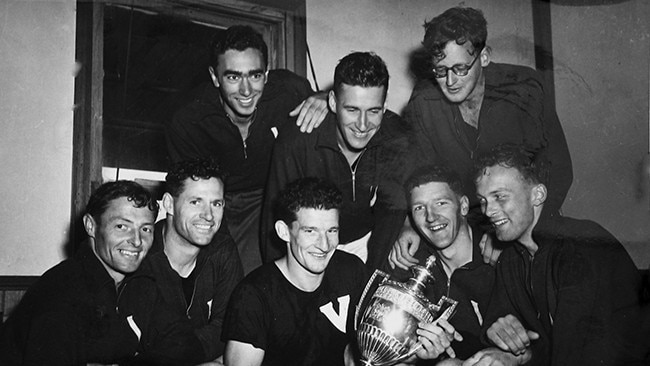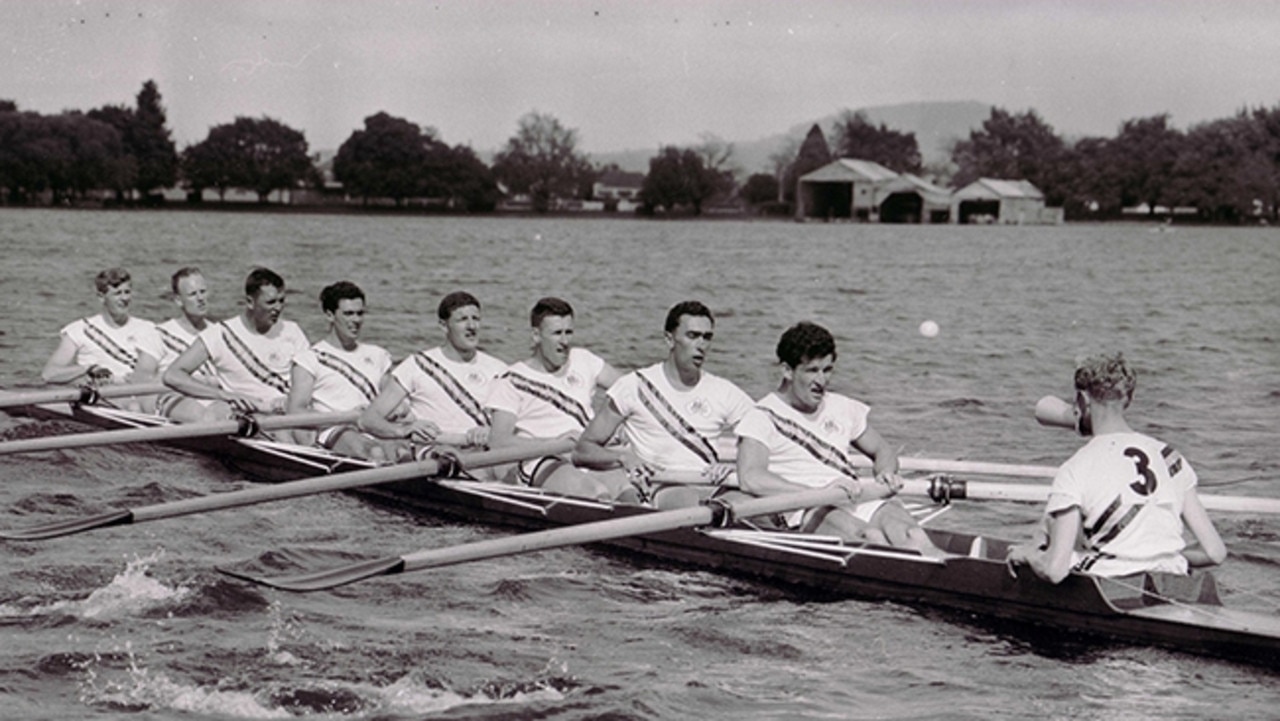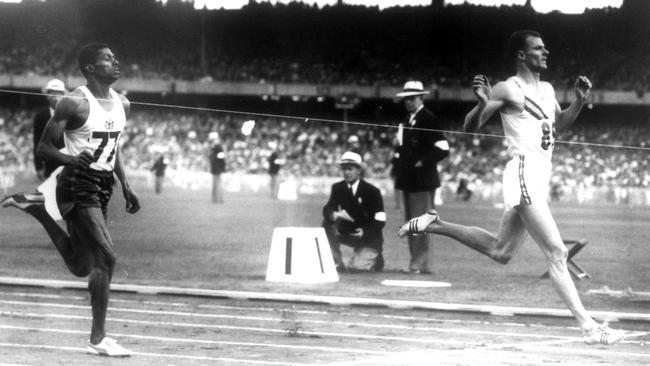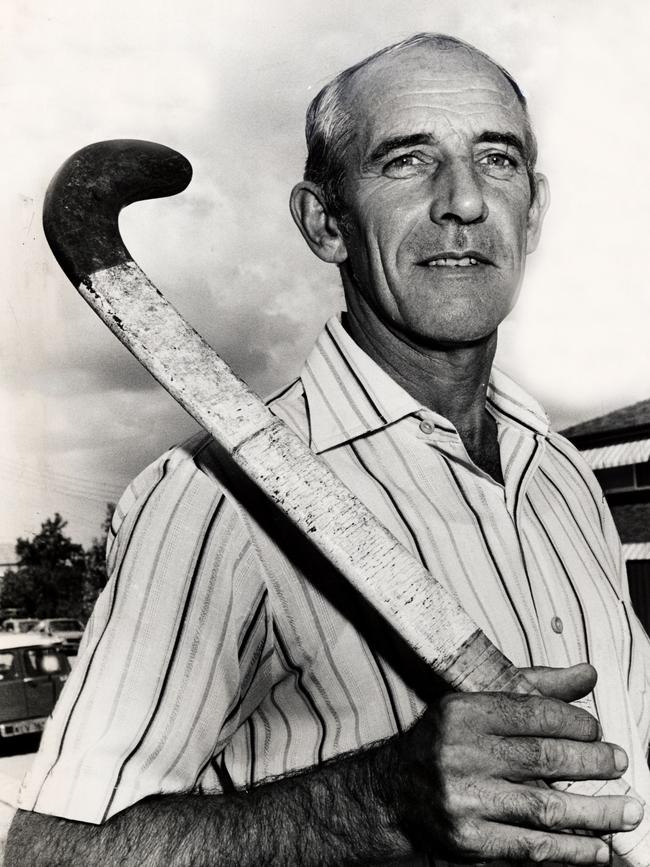Stats tell an interesting tale about the 150 Olympic medallists who died in 2024 | Graham Cornes
There are some sports I always thought would lead to a longer, healthier life, writes Graham Cornes.
Opinion
Don't miss out on the headlines from Opinion. Followed categories will be added to My News.
One hundred and fifty! It seemed such a huge number. As listed by Angus Morrison in last week’s Weekend Australian, that’s how many Olympic medallists died in 2024.
Medallists, not athletes. One can only marvel at the depth of research that could determine that figure. There have been 30 Summer Olympic Games. The total number of accredited athletes to have competed in those games is impossible to calculate given the multitude of sports, be they current, abandoned or rejected.

However, the best researched calculation comes from the OlympStats website, which declares boldly the figure of 128,420. Then in the next sentence declares it is probably inaccurate. But at least we get a ballpark figure.
The fact that the earliest Olympiad in which last year’s departed medallists competed was 1948 does make the research a little easier. Nevertheless, it still meant poring through the records of 20 Olympic Games.
At the Sydney Olympic Games there were 10,647 competing athletes and in Paris last year, 10,714. Good luck working through those numbers.
However, seeing such a long list of high achievers who unfortunately have died, did raise the question of whether sporting excellence and an elite athletic background increased longevity. And did the participants of any particular sport have an increased lifespan?
It is reasonable to assume that fit, dedicated athletes who were committed to sporting excellence would have a healthier lifestyle than the average “Norm”. Even when they had retired from competitive sport, one would suspect the learned habits of diet and exercise would prepare them for a longer, more active life.

Angus Morrison’s sample is interesting. It couldn’t be regarded as a Lancet research paper but it is, well, interesting.
Of the 150 medal winners who passed away last year, only 22 reached the age of 90. That’s 14.6 per cent. Now, the research on ageing population is a little vague but in the USA, its Social Security Administration calculated that 14.37 per cent of men and 25.52 per cent of women live to the age of 90. It’s not a ringing endorsement for the athletes.
And what about the various sports? Are some sports more conducive to longevity than others? Running is supposed to be good for the heart but the great runners, Emil Zatopek and Paavo Nurmi both died in their 70s. Not that they are on last year’s list. Nurmi died in 1973 at the age of 76 and Zatopek in 2000 at 78.
I’d always thought that rowing prepared the athlete for a long healthy life. It strengthened the cardiovascular system without the wear and tear on the joints or the constant jarring of collisions with the ground or with other bodies. Indeed there are three rowers in the list, including Australian Garth Manton who won a bronze medal in the men’s eight in the ’56 Games in Melbourne.
Immensely popular, Manton was a gregarious character. Educated at Geelong Grammar with its implied privileges, he won state and national selection in the number five position in the eight. He also played a bit of football with Old Geelong and later served as president of the club. He succumbed to a stroke later in life but still maintained his sense of humour and ability to mix with and entertain young rowers.

Kevan Gosper was the other Australian in that list who reached the age of 90. His sport shaped him well because he was a fine cut of a man who won a silver medal in the 4x400 athletics team at the Melbourne Olympics. His contribution to his sport did not end there as he later served as the president of the Australian Olympic Committee.
The third Aussie medallist to pass away last year, hockey player Pat Nilan, won a bronze medal in 1964 and a silver medal in 1968. However, he died at the age of 82.
Hockey is a tough sport that demands a high level of aerobic fitness and should set the foundation for longevity. One hockey medallist, Amit Singh Bakshi, who won a gold medal with the Indian team in 1956, died at the grand age of 98. He had also been a 400m runner who won a silver medal in the 1951 Asian Games.
Like many Olympians he led a fascinating life having served as a wing commander in the Indian Air Force and later as a commercial pilot for Air India. His teammate in Melbourne, Gurdev Singh, died at the age of 90 in February last year .
No one sport stands out for preparing the athlete for a long life. However, of the 22 there are three rowers and three fencers. Fencing – now there’s a sport. To the untrained eye the thrust and parry doesn’t really require a high level of fitness. Of course the great fencers are nimble and quick but if you blink you miss the action.
If you are expecting the swashbuckling spectacle of Hollywood and Errol Flynn you will be disappointed. But obviously it’s good for the heart.
There is a good representation of other sports: ice hockey, discus, skating, weightlifting, gymnastics, volleyball, sailing, cycling and shot put.

The oldest of those medallists to pass was Nancy Mackay, an English-born Canadian sprinter who won a bronze medal in the 1948 Olympic Games. She died in January last year at the age of 101.
Interestingly, as at December 31, 2024, Hungarian/Israeli gymnast Agnes Keletti, a survivor of World War 2 who escaped the Holocaust, was, at 103, the oldest living Olympic champion. Unfortunately, she passed away on January 2.
She was still doing the splits in her 90s which must say something for the benefits of gymnastics.
At the other end of the spectrum are those medal-winning athletes who died young in 2024. Sean Burroughs, who won a gold medal with the American baseball team in 2000, was only 43 when he died. A sad story, he was plagued by a drug habit and bounced around the various minor league teams. He died in a parking lot from an overdose of fentanyl. Perhaps baseballers do not have the healthiest of lifestyles.
Indonesian weightlifter Raema Lisa Rumbe was also only 43 when she died in January last year. A native of the Indonesian province of Papua, she was the first Indonesian to win medals in three Olympic Games.
Much loved, she unfortunately suffered from epilepsy which may have hastened her demise.
Every one of those medal-winning Olympic athletes has a story to tell and their own secrets to longevity.
Regular exercise and a healthy diet would be good start. But if you’re looking for a sport to help you live longer, take up rowing and do a little fencing on the side.
More Coverage
Originally published as Stats tell an interesting tale about the 150 Olympic medallists who died in 2024 | Graham Cornes






